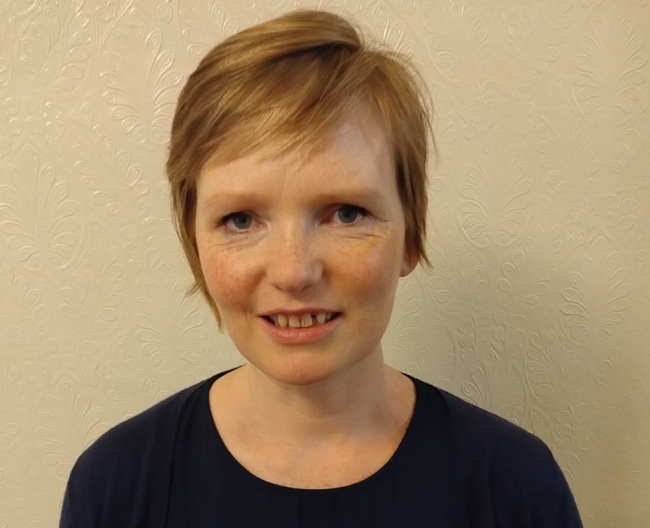Press release posted 17 October 2023
Women who have the most common form of secondary breast cancer*, and who are doing well on treatment, may be able to have their cancer monitored with a simple blood test rather than a CT scan, thanks to a trial that’s taking place at The Christie NHS Foundation Trust.
The trial is co-led by The Christie and Sahlgrenska University Hospital in Sweden, in collaboration with University of Gothenburg and Linköping University. Researchers are looking at whether blood tests are as effective as a routine CT scan in terms of assessing disease progression. Although very effective, scans are often uncomfortable and can raise anxiety levels while people wait for the results. Some scans also carry a small dose of radiation that could increase the chance of the patient getting cancer again in the future.
The trial has recruited 97 patients who will still have scans every 3 months as usual but will also have a blood test on the same day as the scan.
The sample is then sent away for researchers to analyse. They’re looking for DNA fragments released by tumour cells into the blood circulation, referred to as circulating tumour DNA, as well as other biomarkers** that can provide information about a person’s cancer– in order to determine whether the patient’s cancer responds to treatment or may be advancing.
The aim is to develop a biomarker-based prediction model that will inform the doctor whether the patient needs a scan. Scans can thereby be safely omitted as long as biomarker levels remain low and resumed when levels begin to rise indicating that the cancer is growing.
Dr Sacha Howell, Consultant Medical Oncologist at The Christie and co-Chief Investigator of the trial, comments: “Thanks to huge advances in breast cancer treatment, many women are living for many years with the advanced form of the disease.
“By evaluating whether a blood test can be used instead of routine scans to check for disease progression, we’re not only making things more convenient for patients, but are further limiting the risks and discomfort that come with routine scanning.
“Discovering and delivering robust, accurate biomarker tests is central to future cancer treatments. The more biomarkers we develop and deliver, the more targeted and personalised we can be in terms of diagnosing, treating, and monitoring cancer.”
Jenny Bond, a 45-year-old charity shop manager, is one of the patients on the trial. She lives in Cheshire with her fiancé and 2 teenage children.

“I got diagnosed with breast cancer for the second time a couple of years ago. Unfortunately, by the time they found it, it had spread to my bones. I knew something was wrong, but even so, being diagnosed with stage four cancer still came as a shock.
“I’m doing really well on treatment. I’m back at work and am living my life to the full. I jumped at the chance to take part in this trial because it could make things better for the women like me in the future. It’d be brilliant if they could just get a blood test at their GP instead of having to go to the hospital for a scan.
“The team at The Christie has already saved my life once when I had breast cancer for the first time at 32, and they’ve been just as brilliant this second time around. You can feel the love and dedication from every member of staff. I’m so lucky to have it so close to where I live.”
Any patients interested in taking part in clinical trials should discuss this option with their consultant or GP. Not all patients will fit the criteria for a specific trial. While clinical trials can be successful for some patients, outcomes can vary from case to case. You can read more about this on our taking part in clinical trials page.
More information about the trial is available at clinicaltrials.gov.
*The women on the trial have oestrogen-positive (ER+)/HER2-negative breast cancer. 80% of women have ER+ disease and 15% have HER2-negative disease. (Source: Cancer Research UK)
**The three main biomarkers are:
- Circulating tumour DNA - as a tumour grows, cells die and are replaced by new ones. The dead cells get broken down and their contents, including fragments of DNA, are released into the bloodstream.
- TK-1 – an enzyme which is essential for DNA synthesis and cell repair. High levels of it in the blood can indicate that cells are growing whereas low levels are seen when cancers are controlled, particularly by the type of treatment used in this trial.
- CA 15-3 – a protein that can be shed from the surface of breast cancer cells into the blood. This test has been available for many years, but in this study it will be used combined with other biomarkers in order to better reflect the patients cancer.
Additional samples will be stored so that other, not yet defined biomarkers can also be tested in future.
